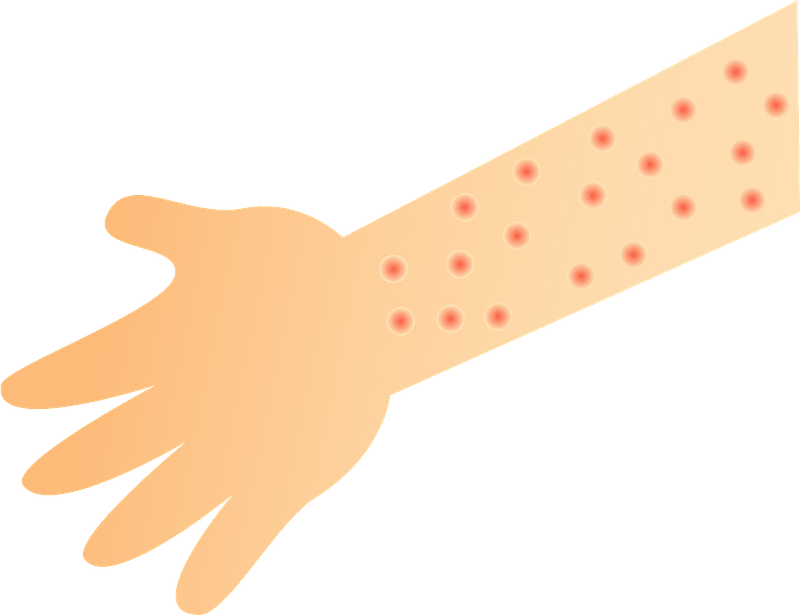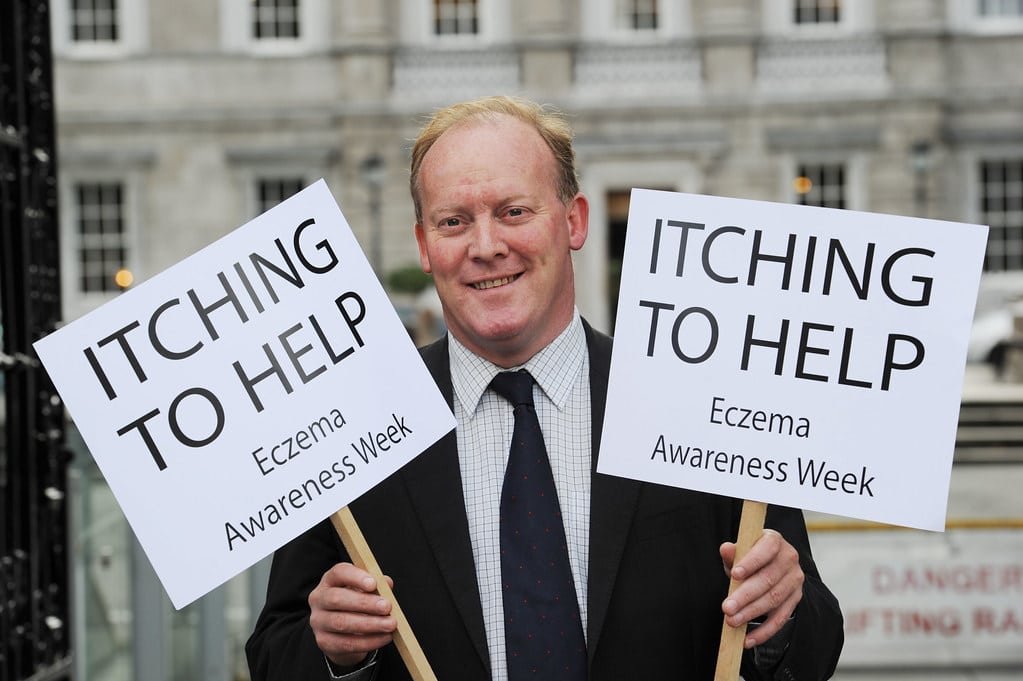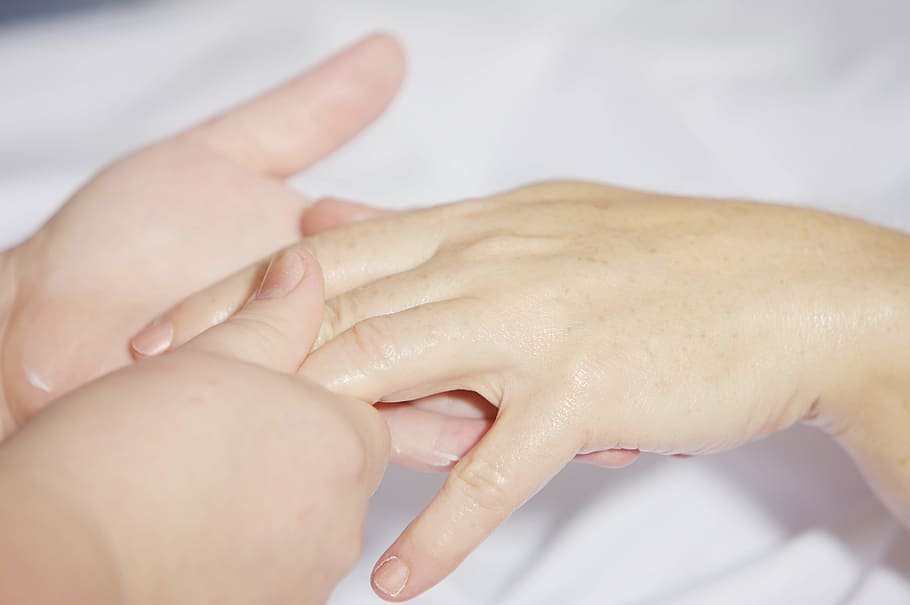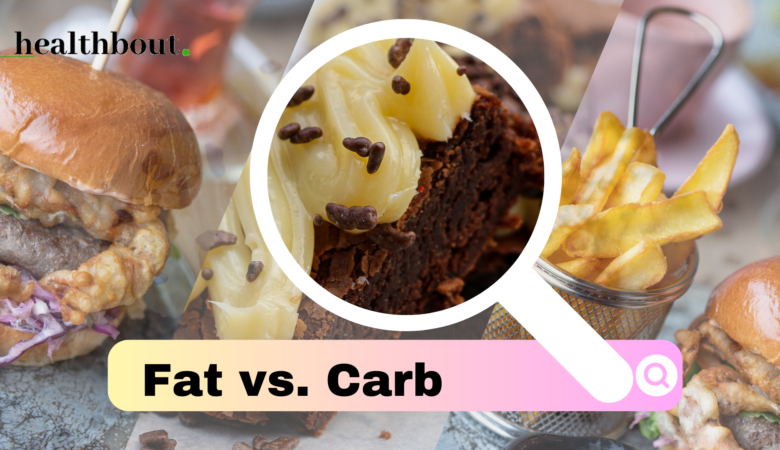If your skin is red and itchy that shows symptoms of eczema.
Atopic dermatitis is a chronic condition and the problem comes at regular intervals. Thus, when the skin starts becoming inflamed, red, and itchy with other complications as well, it needs instant treatment.
As such no permanent treatment for eczema until now is available.
But the problem of dermatisis it can be controlled by self-treatment or care measures, like avoid harsh soaps, moisturize your skin regularly and apply medicated creams and ointments, etc.
Symptoms of Atopic dermatitis
The following are the symptoms of atopic dermatitis (eczema)
- Problem of dry skin.
You may be experiencing itching especially at night
- Red brownish-gray patches on hands feet, ankles, wrists, neck, upper chest, eyelid, inside the bend of elbows and knees.
- Infants have atopic dermatitis on the face and scalp.
- Eczema can result in raw, sensitive, swollen skin from scratching.
Atopic dermatitis can begin at a very young age of 5 years and may persist into adulthood and adolescence.
What are the basic causes of eczema?
Healthy skin itself protects from bacteria, irritants, and allergens.
Eczema is a result of a little gene variation that makes skin inability to provide protection.
As a result, eczema allows the skin to get affected by environmental factors, irritants, and allergens.
Are there any risk factors associated with eczema dermatitis?

The risk factor for eczema mainly can be family history only. Here, history can be of eczema, allergies, hay fever, or asthma.
But, it is important to know, the risks and complications associated with Eczema?
1. Asthma or hay fever
Sometimes, Eczema precedes asthma problems. Children of 13 years of age with half of the population develop asthma and hay fever.
2. Chronic scaly or itchy skin
A skin condition called neurodermatitis starts with patchy skin. As a result, a heavy itching skin area will cause grievous results.
Thus, skin affected by the problem of eczema will become discolored, thick, and leathery.
3. Skin infections
Repeated scratching breaks the skin and causes open cores and cracks.
Thus, it increases the risk of infection from bacteria and viruses to attack including the herpes simplex virus.
4. Use of soaps and detergents
In some business activities, people regularly need to wash their hands.
Here, they find more risk of skin problems resulting in eczema due to their hands are more in contact with harsh soaps, detergents, and disinfectants.
5. Allergic contact to dermatitis
This condition comes to those who have atopic dermatitis or eczema.
6. Sleeping problems
The itch-scratch cycle causes a poor quality of sleep.
What is the best treatment for eczema (atopic dermatitis)?

- Moisturize your skin at least twice a day. By usage of packed moisturizers will seal your skin under moisture.
Using petroleum jelly for your babies will help you prevent the development of atopic dermatitis.
- Avoid the condition that triggers itching. Conditions like sweat, obesity, soaps, detergents, dust, and pollen can worsen the skin reaction.
In other cases, infants and children very rapidly become allergic to certain foods, including eggs, milk, soy, and wheat.
Try to reduce your exposure to this.
- Try to take a short bath more frequently, so that allergic and infections don’t have the scope to grow.
- Have a bleach bath to prevent eczema symptoms.
Taking a bleach bath is recommended by the American Academy of Dermatology. The bleach bath helps to prevent flares.
Add ½ cup (118 ml) of household bleach, not concentrated bleach, to a 40-gallon (151 ml) bathtub filled with warm water.
Soak from neck down or just affected areas for about 10 minutes. Don’t submerge the head.
But, better to take a bleach bath no more than 2 times in a week.
- Use gentle soaps. Choose mild soaps. It works well in dermatitis.
Deodorants soaps and antibacterial soaps can remove more natural oils and dry your skin.
Triggers of Eczema
- Chemicals.
Using a shampoo, conditioner, or body wash can trigger an allergy condition in you.
By your self, you can pinpoint the reason for your allergy breakout and after that try to avoid those chemicals or allergens and cosmetic products to limit your exposure.
- Smoking
When you are in stress condition which eventually triggers eczema, you can smoke to relieve stress.
But smoking can make your eczema condition worse.
Avoid smoking in stressful conditions to prevent the severe condition of eczema.
Does a good treatment cure eczema? Does it go away?
The healing time for eczema depends upon the underlying cause.
But, if in your case the eczema is a flare-up from a contact trigger, the rashes will go away likely in a few weeks upon treatment.
Allergic treatment may take a longer time.
Stages of Eczema
Eczema broke down into 3 stages
- Chronic Eczema
Chronic eczema is found in those individuals who have a flare-up of skin allergy in their infant stage of life when you are only 12 months old.
It generally lasts for a lifetime with occasional flare-ups, but childhood eczema can be treated at the same time.
2. Acute Eczema
Acute eczema results when your skin comes in contact with irritating substances like chemicals in disinfectants, food items.
3. Subacute Eczema
Subacute eczema is a part of the healing phase of eczema. It can back up the flare if left untreated into a full rash.
Diagnosis and Treatment
A doctor generally in eczema doesn’t ask for any lab test. They will see rashes on your skin and most likely will see your medical history.
Further, they can also use patch testing or other tests to rule out other skin diseases or will identify the condition that accompanies your eczema.
Treatment to cure eczema problem
Medications:
- Better to use creams that can control itching and help repair the skin
- Use drugs to fight eczema
- Prescribed oral drugs that control oral inflammation
In severe conditions, doctors prescribed oral corticosteroids- such as prednisone.
Medicines have also give serious side effects when using it for a long time.
A new medication is recently approved by the food and drug association (FDA) an American organization called injectable biologic (monoclonal antibody) called dupilumab.
It is specifically used for those people who are not showing responses to other treatments.
Use of some Therapies
- Wet dressings
It is used for people who have lesions, but it is quite labor-intensive and requires nursing expertise.
Wet dressings is used in severe conditions of atopic dermatitis.
It involves the wrapping up of the affected area with topical corticosteroids and wet bandages.
2. Light therapy for dermatitis
This treatment is done for those who have flared up again after the treatment.
Inlight therapy skin is exposed to natural sunlight or artificial UV-A AND UV-B radiation is given to the skin.
Although in this therapy skin cancer or premature skin aging can take place. So, this is not recommended for young children and not at all for infants.
In conclusion
Eczema contains symptoms like red, itchy, and inflamed skin.
It becomes uncomfortable and embarrassing, but with proper treatment, it is quite manageable most of the time.
Though the flare-ups appear the same at first glance, dermatologists actually see symptoms of six different kinds of eczema: atopic dermatitis, dyshidrotic eczema, contact dermatitis, seborrheic dermatitis, nummular eczema, and stasis dermatitis







